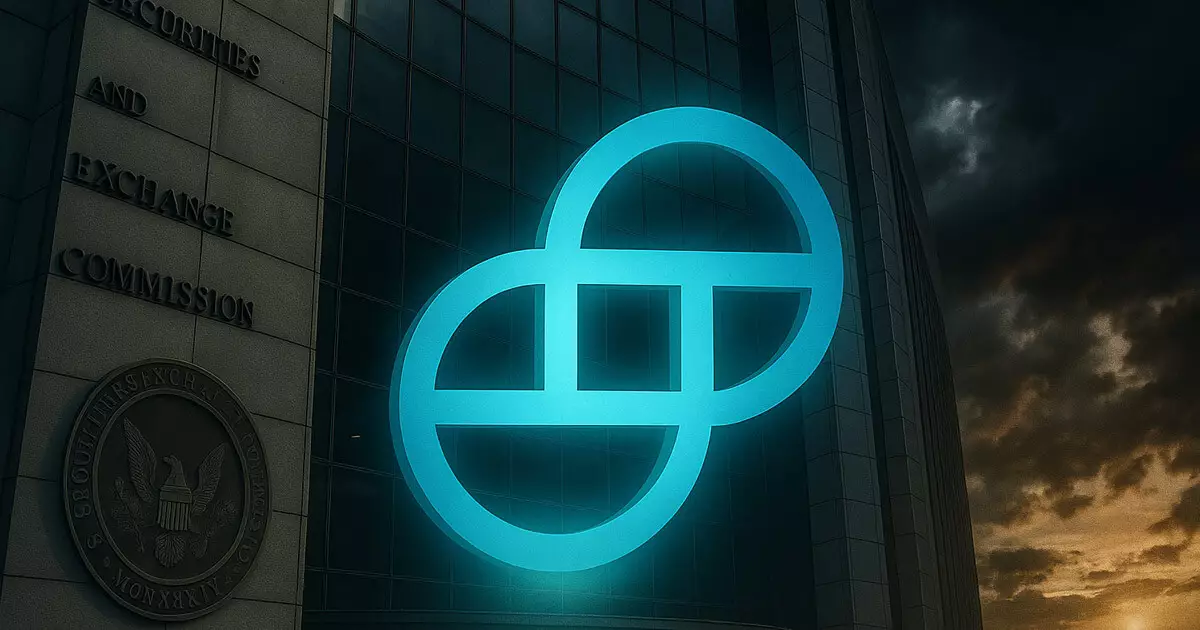It’s no secret that the cryptocurrency market has become a battleground for regulators who often prioritize career advancement over fair practices. The recent complaint filed by Gemini, a leading crypto exchange, against the Commodity Futures Trading Commission (CFTC) showcases a troubling narrative of regulatory overreach and a blatant disregard for due process. By accusing the CFTC’s Division of Enforcement (DOE) of a targeted legal vendetta, Gemini is not merely defending itself; it’s issuing a clarion call for reform in an out-of-control regulatory environment.
A Culture of Trophy-Hunting
Tyler Winklevoss, Gemini’s co-founder, has made a grave accusation: that the CFTC has engaged in “trophy-hunting lawfare” aimed at bolstering the careers of its attorneys rather than ensuring market safety. This accusation isn’t just an emotional outburst; it highlights a dangerous precedent wherein government agencies use their resources for personal gains, exploiting taxpayer dollars for self-agrandising pursuits. Such behavior erodes public trust in regulatory bodies and raises significant ethical concerns about the integrity of financial oversight.
The Allegations of Misconduct
Gemini’s allegations against the CFTC come after a $5 million settlement, which, they argue, was not an admission of guilt but rather a strategic decision to avoid a protracted and costly legal battle. Crypto exchanges like Gemini are vital players in the financial ecosystem, and punishing them without concrete evidence can have devastating effects—not just on the exchange but on the overall market and all stakeholders involved. The CFTC’s reliance on dubious testimonies from disgruntled former employees to construct a case against Gemini underscores a glaring lack of accountability and due diligence, making one wonder if the agency is even equipped to handle the complexities of the rapidly evolving cryptocurrency landscape.
The Real Victim: Economic Integrity
The irony in this situation is palpable. While the CFTC paints itself as a watchdog, what is truly at stake is economic integrity. By targeting an innocent party and ignoring evidence that contradicts its narrative, the CFTC risks undermining the very market it seeks to regulate. This isn’t just about Gemini; it’s about the message sent to every innovator and entrepreneur in the crypto space: that compliance may be met with punitive measures, not support. This could stifle innovation, driving talented individuals and firms overseas, seeking more favorable regulatory climates that actually encourage growth instead of stifling it.
Internal Politics Over Public Interest
The criticisms don’t stop with individual misconduct; they extend to a broader systemic issue within the CFTC. The accusations from Gemini suggest an internal culture that has shifted away from public interest to internal political machinations. This environment can lead to decisions made based on personal ambition rather than the foundational principles of fairness and justice. If regulators prioritize personal gains over the welfare of public interest—or worse, operate under a cloud of arrogance—then the system itself becomes compromised.
Call for Reform
Gemini’s call for sweeping reforms at the CFTC is not just a necessary reaction; it is an imperative. If the agency’s enforcement practices go unchecked, they threaten to cause collateral damage across the entire financial ecosystem. Laws and regulations must not only be enforced but must reflect the realities of the sectors they aim to regulate. There is an urgent need for a thorough reevaluation of the CFTC’s internal culture and the mechanisms through which it operates. Without reform, we risk establishing a regulatory environment that fosters paranoia, compliance for compliance’s sake, and ultimately a stifling atmosphere for good-faith actors.
While this article has outlined grave financial and ethical concerns regarding the CFTC’s approach toward Gemini, it’s also a crucial reflection on the accountability owed to regulatory bodies. The CFTC must recognize that it operates on the trust of the public it serves and thus must carry out its duties with greater integrity, transparency, and fairness. Anything less risks not only the reputation of the agency but also the fabric of trust within the entire financial system—one that cryptocurrencies have the potential to reshape for the better. The stakes couldn’t be higher.















